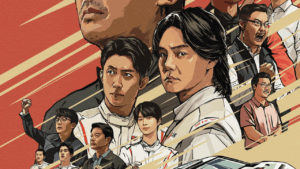behind the spotlight, a troubling trend persists: the industry increasingly resembles a closed club where lineage trumps talent. Acting dynasties – Kapoors, Bachchans, Khans, Deols, Pataudis, and Mukherjis, dominate Bollywood, sidelining outsiders and stifling creativity. This systemic favoritism toward “star kids” not only undermines merit but also poses a grave threat to the artistic integrity of one of the world’s largest film industries.
The Dominance of Film Families
A glance at Bollywood’s A-list reveals a pattern: Alia Bhatt (daughter of Mahesh Bhatt), Ranbir Kapoor, Kareena Kapoor (scions of the Kapoor legacy), Varun Dhawan (son of director David Dhawan), and Sara Ali Khan (born to Saif Ali Khan and Amrita Singh), Shradha Kapoor (daughter of actor Shakti Kapoor), Jhanvi Kapoor (born to Sridevi and Boney Kapoor), and so on (list is endless), are examples of actors who entered the industry with pre-existing connections. Generations of actors, directors, and producers continue to dominate, making it harder for new talent to break through.
While some star kids, like Hrithik Roshan and Rani Mukherji, have proven their talent through hard work, their privileged entry contrasts sharply with the struggles faced by outsiders. Actors like Nawazuddin Siddiqui and Rajkummar Rao, who rose from small towns and theatre backgrounds, are exceptions in an ecosystem where debut roles for outsiders are rare and often typecast. Meanwhile, star kids are launched with grand productions, massive media coverage, and endless second chances even if their debut fails (Arjun Kapoor, Jackie Bhagnani, Tussar kapoor). Recent release like Azaad and the upcoming movie Loveyapa further highlight this trend, with both films featuring casts predominantly from film families.
The Creativity Crisis
When an industry prioritizes pedigree over potential, storytelling suffers. Homogeneity creeps in, similar faces, repetitive narratives, and a reluctance to take risks. The primary concern with nepotism is that it diminishes meritocracy. When roles are awarded based on family connections rather than acting prowess, the industry suffers creatively. Actors with limited talent but strong lineage are often cast in lead roles, while talented outsiders either remain unnoticed or are relegated to supporting roles. This lack of fresh talent weakens Bollywood’s ability to produce compelling, original content, leading to repetitive and uninspired storytelling.
Read More Articles:
Shahid Kapoor Box Office Analysis: Deva’s Performance and Its Impact on His Stardom
Akshay Kumar’s ‘Sky Force’: A Modest Opening Amidst Recent Box Office Challenges
The Struggle of Outsiders
Breaking into Bollywood without industry connections is an uphill battle. Aspiring actors often undergo years of struggle, attending countless auditions, facing rejections, and dealing with financial insecurity. In contrast, star kids enjoy easy access to top production houses, mentors, and PR machinery that helps shape their careers. Many talented actors, who lack such backing, are either forced to take up minor roles or leave the industry altogether.
Moreover, nepotism narrows the range of lived experiences on screen. Art thrives on diversity, but when actors hail from similar privileged bubbles, authenticity dwindles. A 2022 study found that over 60% of lead roles in that year’s top 50 Hindi films went to star kids or industry insiders, marginalizing voices from rural India, lower-income backgrounds, or non-film families.
A Threat to Creativity and Cinema’s Future
Any creative field thrives on diversity, fresh perspectives, and new talent. Bollywood’s nepotistic culture stifles innovation by promoting the same pool of actors, many of whom fail to bring originality to the screen. With streaming platforms now providing a stage for independent filmmakers and actors, audiences are exposed to raw, authentic talent. The success of actors who made it without film family connections, like Nawazuddin Siddiqui, Pankaj Tripathi, Rajkummar Rao, and Jaideep Ahlawat, proves that audiences appreciate talent over surname.
The roots of this bias are both economic and cultural. Producers, wary of box-office risks, bank on star power to secure investments. Star kids inherit fan bases and media attention, making them marketable from day one. Additionally, insider networks from casting directors to PR teams, often favor familiar faces.
The Need for Change
For Bollywood to truly be a global cinematic force, it must embrace change. Casting should be based on auditions and merit, not family name. Production houses must invest in diverse talent, giving equal opportunities to actors regardless of their background. Only when Bollywood prioritizes skill over surname will it reclaim its lost glory and become a fair, competitive, and truly creative industry.
A Call for Reinvention
Bollywood’s nepotism crisis isn’t just about fairness, it’s a survival issue. For an industry that prides itself on mirroring society, excluding vast swathes of talent is creatively bankrupt. The solution lies in embracing the very essence of cinema: storytelling that resonates with all voices. Only then can Bollywood reclaim its title as “the heartbeat of Indian creativity”, not just a “family business.”

























